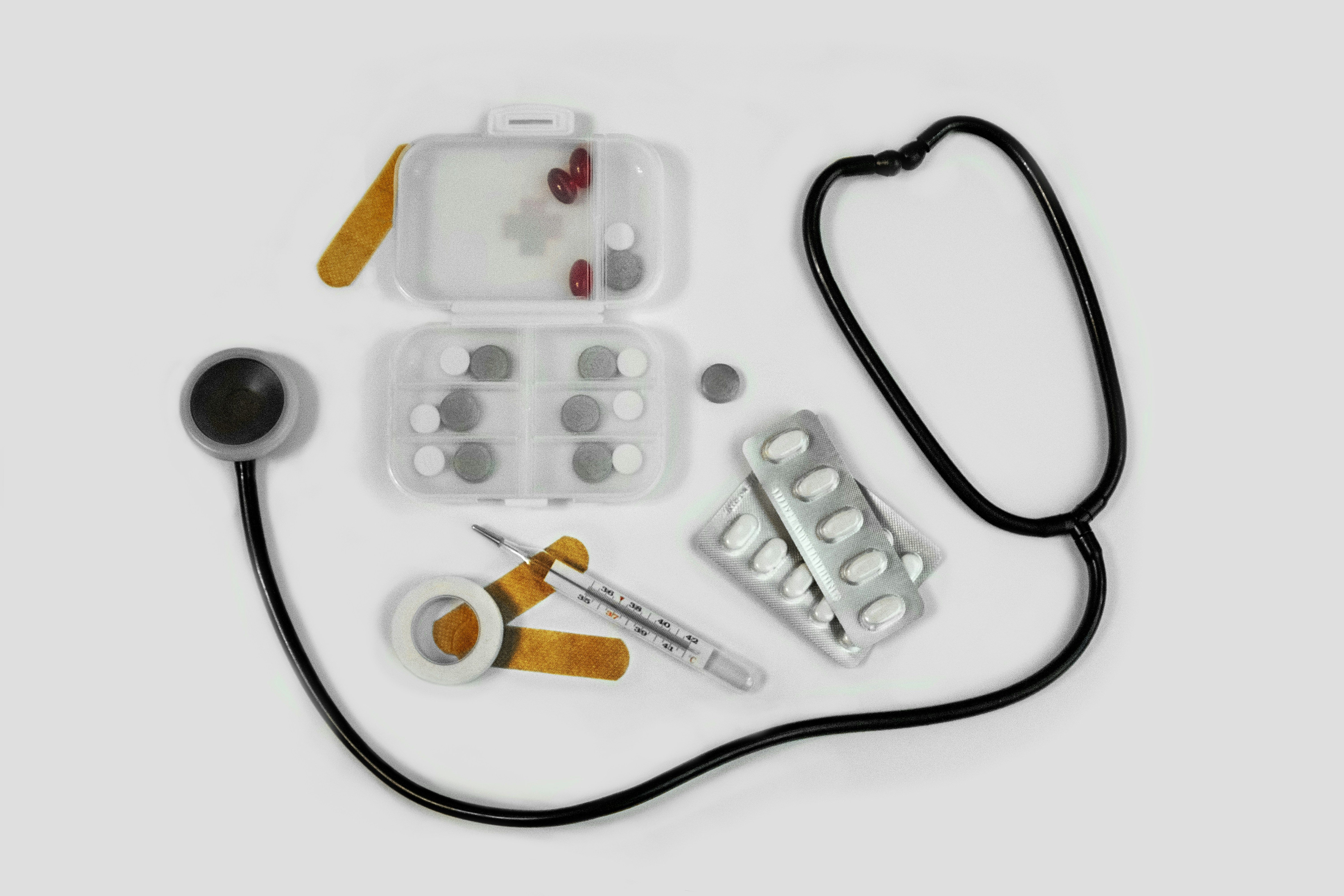Many people use the terms “cold sores” and “herpes” interchangeably, leading to confusion about what they actually mean. While cold sores are a form of herpes, not all herpes infections result in cold sores.
Understanding the differences between cold sores and herpes can help you recognize symptoms, manage outbreaks, and reduce the risk of transmission.
What Are Cold Sores?
Cold sores, sometimes called herpes cold sores, are a common symptom of herpes simplex virus (HSV) infection, appearing as small, fluid-filled blisters on or around the lips. They are primarily caused by HSV-1, though HSV-2, which is more commonly linked to genital herpes, can also trigger outbreaks.¹
The virus spreads easily through direct contact, such as kissing, sharing drinks or utensils, or touching an affected area. Once a person is infected, the virus stays in the body permanently and can reactivate due to triggers like stress, illness, sun exposure, hormonal changes, or a weakened immune system.¹
What Is Herpes?
Herpes is a contagious viral infection that causes outbreaks of sores, most commonly on the mouth or genitals. It is caused by the herpes simplex virus (HSV), which has two types: HSV-1, primarily associated with oral herpes, and HSV-2, which is more often linked to genital herpes but can also spread to the mouth through oral contact.²
The virus is transmitted through skin-to-skin contact, including kissing and sexual activity. Many people contract herpes without realizing it, as some infections remain asymptomatic. Once in the body, the virus stays dormant in the nervous system and can reactivate due to triggers like stress, illness, or a weakened immune system.²
What’s the Difference Between Cold Sores and Herpes?

Cold sores and herpes are both caused by the herpes simplex virus, but they differ in several key ways. Comparing the different components of cold sores vs. herpes can help you gain a better understanding of the two.
Cold sores, typically caused by HSV-1, appear as blisters around the lips, mouth, or nose, while herpes can affect the genitals, mouth, or other areas of the body and may be caused by either HSV-1 or HSV-2. Cold sores usually present with tingling, itching, and crusting blisters, whereas herpes can also include ulcers, flu-like symptoms, and nerve pain.³
Transmission methods vary slightly, with cold sores spreading through saliva, direct contact, and shared objects, while herpes is primarily spread through skin-to-skin and sexual contact.⁴
Both conditions can recur due to triggers like stress, illness, or sun exposure, though herpes outbreaks are also linked to weakened immunity and hormonal changes.⁴
Despite misconceptions, oral herpes is widespread, and while genital herpes carries more stigma, both are medically similar and should not be a source of shame.
How Are Herpes and Cold Sores Treated?
Herpes and cold sores can be effectively managed with proper diagnosis and treatment. While both conditions share similar causes, identifying the type of herpes infection is essential for appropriate care.
Cold Sore and Herpes Diagnosis
A diagnosis is typically made through a physical examination, where a doctor assesses the affected area for characteristic blisters or sores.
In some cases, laboratory testing is required for confirmation. A swab test can detect the presence of the herpes simplex virus from an active sore, while blood tests can identify herpes antibodies, indicating a past or current infection. However, blood tests cannot determine the location of the virus in the body.
Cold Sore and Herpes Treatment Options
While there is no cure for cold sores or herpes, both conditions can be effectively managed with antiviral medications, topical treatments, and lifestyle adjustments. Treatment focuses on reducing symptoms, shortening outbreaks, and lowering the risk of recurrence and transmission.
- Cold Sore Treatment: Cold sores, primarily caused by HSV-1, can be managed with antiviral medications like acyclovir, valacyclovir, and famciclovir, which help shorten outbreaks and reduce recurrence.
- Over-the-counter creams like docosanol (Abreva) may speed up healing, while home remedies such as applying ice, using lip balm with SPF, and avoiding triggers like stress and sun exposure can help prevent future flare-ups.
- HerpesTreatment: While herpes cannot be cured, antiviral medications such as acyclovir, valacyclovir, and famciclovir can manage symptoms, reduce the frequency of outbreaks, and lower transmission risk.
- For those with frequent recurrences, daily suppressive therapy may be recommended, along with stress management and lifestyle changes to help minimize flare-ups.

How Can You Prevent Cold Sores and Herpes?
Preventing cold sores and herpes outbreaks involves a combination of reducing exposure risks and managing triggers that can cause flare-ups. While both conditions are contagious, taking the right precautions can help minimize transmission and keep outbreaks under control. These measures include:¹,²
- Avoid Contact During an Outbreak: Refrain from kissing or sharing personal items like lip balm and utensils when a cold sore is present.
- Use Protection During Sexual Activity: While condoms and dental dams reduce the risk, they do not completely prevent herpes transmission.
- Manage Triggers: Keep stress levels in check, maintain a healthy immune system, and avoid excessive sun exposure.
- Wash Hands Frequently: This prevents the spread of the virus from one area of the body to another.
Frequently Asked Questions
Are cold sores always herpes?
Yes, all cold sores are caused by the herpes simplex virus (HSV), typically HSV-1. If you have a cold sore, it means you have the virus.
Can you kiss someone with a cold sore and not get one?
It’s possible but unlikely. Cold sores are highly contagious, and kissing or sharing drinks with someone who has an active sore significantly increases the risk of transmission.
Do all cold sores mean you have herpes?
Yes, cold sores are a form of herpes caused by HSV-1. However, having cold sores does not mean you have genital herpes, which is typically caused by HSV-2.
Are cold sores a big deal?
Cold sores are common and usually not serious, but they can be painful, contagious, and recurring. In some cases, they may cause complications for people with weakened immune systems.
How common are cold sores?
HSV-1, the virus that’s typically behind cold sores, is extremely common. In fact, the World Health Organization estimates 3.8 billion people under age 50 have HSV-1.⁵
Fast, Discreet, and Effective Herpes & Cold Sore Treatment with 24hrdoc
Managing cold sores and herpes doesn’t have to be stressful. At 24hrdoc, we provide fast, discreet, and affordable online treatment for herpes and cold sores, allowing you to get the antiviral medications you need without the hassle of a doctor’s visit.
Whether you’re dealing with a current outbreak or looking for suppressive therapy to prevent future flare-ups, our licensed medical professionals are here to help. Get started today and take control of your health with convenient, expert care from 24hrdoc.
Sources:
- MedlinePlus. Herpes - oral.
- MedlinePlus. Genital herpes.
- American Academy of Dermatology. Herpes simplex: Signs and symptoms.
- American Academy of Dermatology. Herpes simplex: Who gets and causes.
- World Health Organization. Herpes simplex virus.




